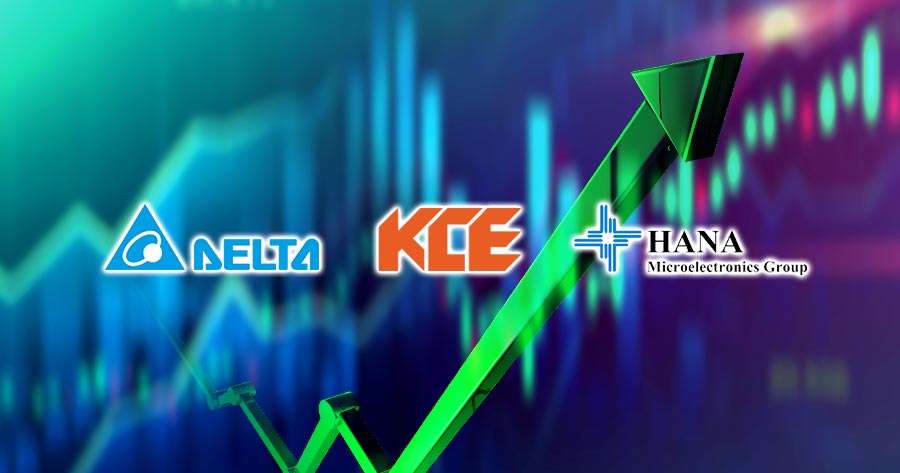At 10:33 AM Bangkok time on Thursday, Delta Electronics (Thailand) Public Company Limited’s (SET: DELTA) stock price surged by 4.14%, or THB 3.00, to reach THB 75.50, with a trading value of THB 735.48 million.
Similarly, Hana Microelectronics Public Company Limited (SET: HANA) saw a 5.06% increase, or THB 2.00, bringing its share price to THB 41.50, with a trading value of THB 579.77 million.
KCE Electronics Public Company Limited’s (SET: KCE) stock price rose by 4.38%, or THB 1.75, to THB 41.75, with a trading value of THB 336.13 million.
As for Cal-Comp Electronics (Thailand) Public Company Limited (SET: CCET), its share price went up by 1.69%, or THB 0.06, to THB 3.62, with a trading value of THB 52.72 million.
Krungsri Securities (KSS) indicated that the positive sentiment seen in electronic stocks was driven by a sustained decline in US bond yields. Additionally, global technology stocks were entering a recovery phase as businesses were hitting bottom and transitioning into a new growth cycle.
KSS recommended investing in Hana Microelectronics Public Company Limited (SET: HANA) due to the anticipated continuous growth of the company’s earnings in the second quarter of 2024, particularly stemming from seasonal factors.
Furthermore, KSS set a target price of THB 45 per share for KCE Electronics Public Company Limited (SET: KCE), noting that the company had likely passed the trough of its earnings and was poised for a business recovery acceleration in the coming months. This prediction was supported by the resumption of orders, coupled with internal efficiency enhancements, which could bolster KCE’s margins.
On a separate note, Kasikorn Securities (KS) recommended Delta Electronics (Thailand) Public Company Limited (SET: DELTA) with a target price of THB 79 per share. The analyst projected that the company would benefit from a weakened Thai baht against the US dollar and a surge in semiconductor stocks globally. The overall business outlook for DELTA, as well as the industry, was viewed positively, with a growth trend anticipated for the second half of 2024 driven by increasing client orders and a strong backlog.





